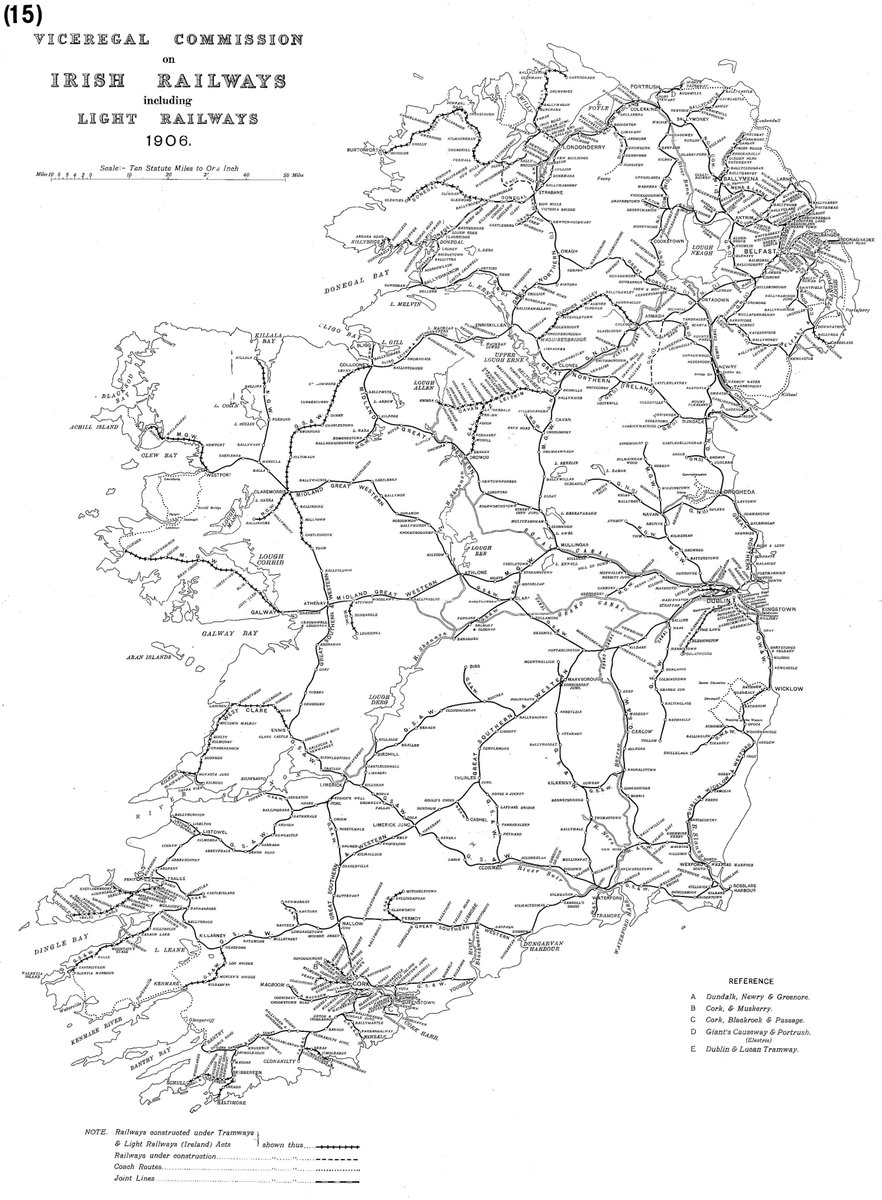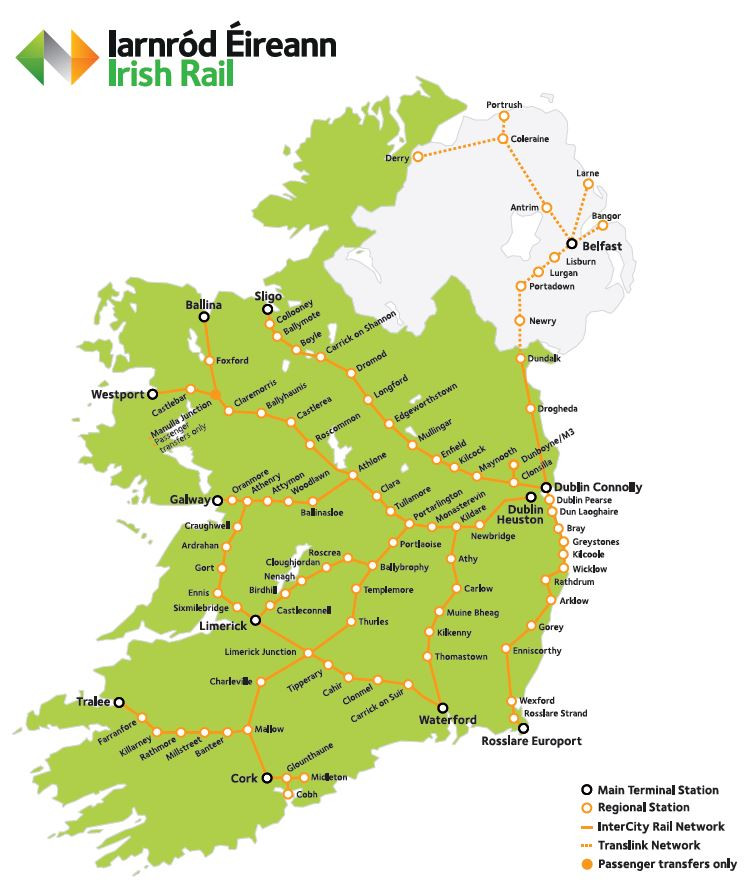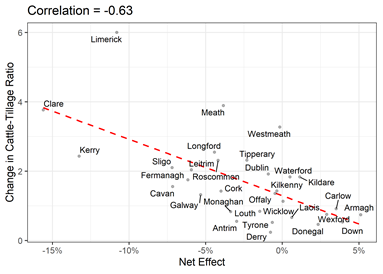
The disparity between Ireland's railways in the the 1920s and 2020s has been subject to much criticism online. But what was the impact of having such an expansive rail network on the Irish economy in the 19th and 20th century? And, was this impact always positive? 1/11 



Railways revolutionised transport in 19th C. Ireland. In a new WP (quceh.org.uk/uploads/1/0/5/…), @ronanlyons & Alan Fernihough investigate the economic consequences of this expansive rail network for the island of Ireland. 2/11 #econtwitter #econhistory #irishhistory
They began by considering ‘market’ access, a term which measures how easy, in time and money, it is to go from A to B and from A to C. They then measured ‘port access’, showing how easy it was to get from A to P(ort). 3/11
By computing these variables across nearly 3,400 districts, it was possible to create a detailed image of economic improvements caused by rail. Market and port access correlate, but imperfectly. For example, Clare and Limerick benefitted more from port than market access 4/11 

Then, by running a series of regression models, they found that market access *increased* population growth (1851-1911) but port access *decreased* it! Easier access to ports appears to have facilitated emigration. 5/11
(Economic aside: the methodology is diff-in-diff w/controls and they also do some IV and numerous robustness stuff). Using these models, you can plot the spatial distribution of rail Winners and Losers like so: 6/11 

There is a clear correlation between emigration and rail’s predicted net effects—counties relatively more exposed to port access, and thus external markets lost more people to emigration. What else can we see using these data? 7/11 

The post-Famine period was also marked by a shift from crop to cow as the agri-sector became less labour-intensive. Official agricultural statistics allow us to deduce the rate of change in cows to tillage land between 1852 and 1911 8/11 

Like with migration, the correlation between the two is striking. Counties more exposed to external markets were more willing to shift to pastoral. The R^2 here is 40pc, so 2/5ths of the variation in this shift is accounted for by rail net effects 9/11
Overall, the results square nicely with both Irish historiography, as rail did not lead to mass industrialisation, and wider research on market access and economic outcomes. They also offer suggestive evidence about rail’s contribution to emigration and crop-to-cow farming 10/11
That’s not to say railways did not alter Irish life in numerous other intangible ways—something we discuss in the paper—for example, how can one quantify the West Clare railway’s lacklustre performance in stimulating Percy French’s “Are Ye Right There Michael”? 11/11
12/11
• • •
Missing some Tweet in this thread? You can try to
force a refresh




